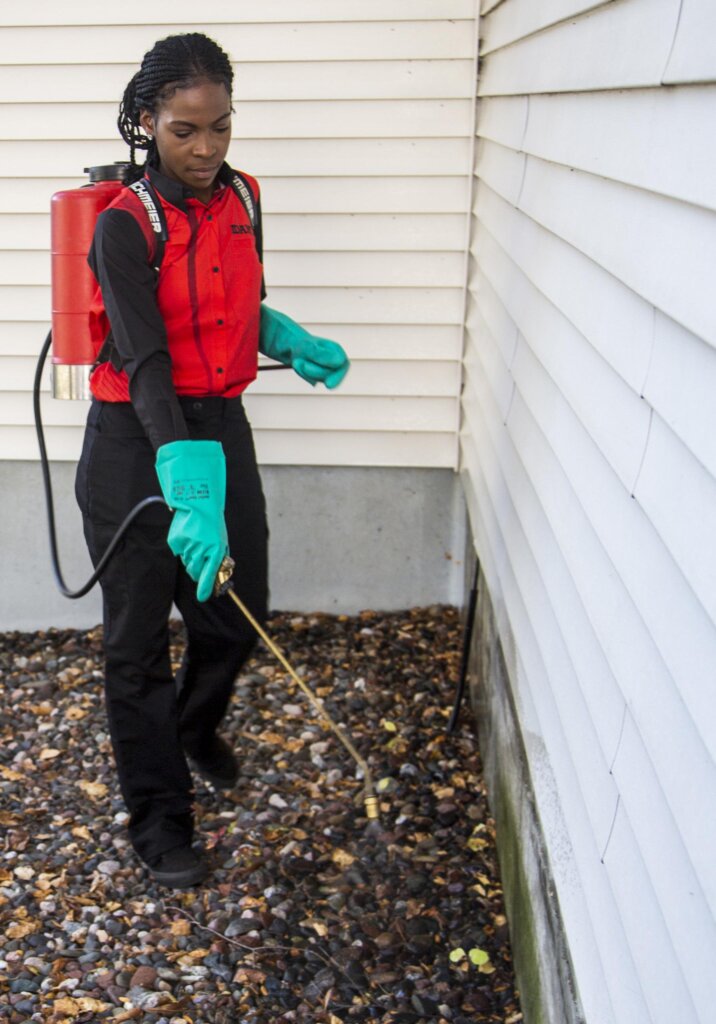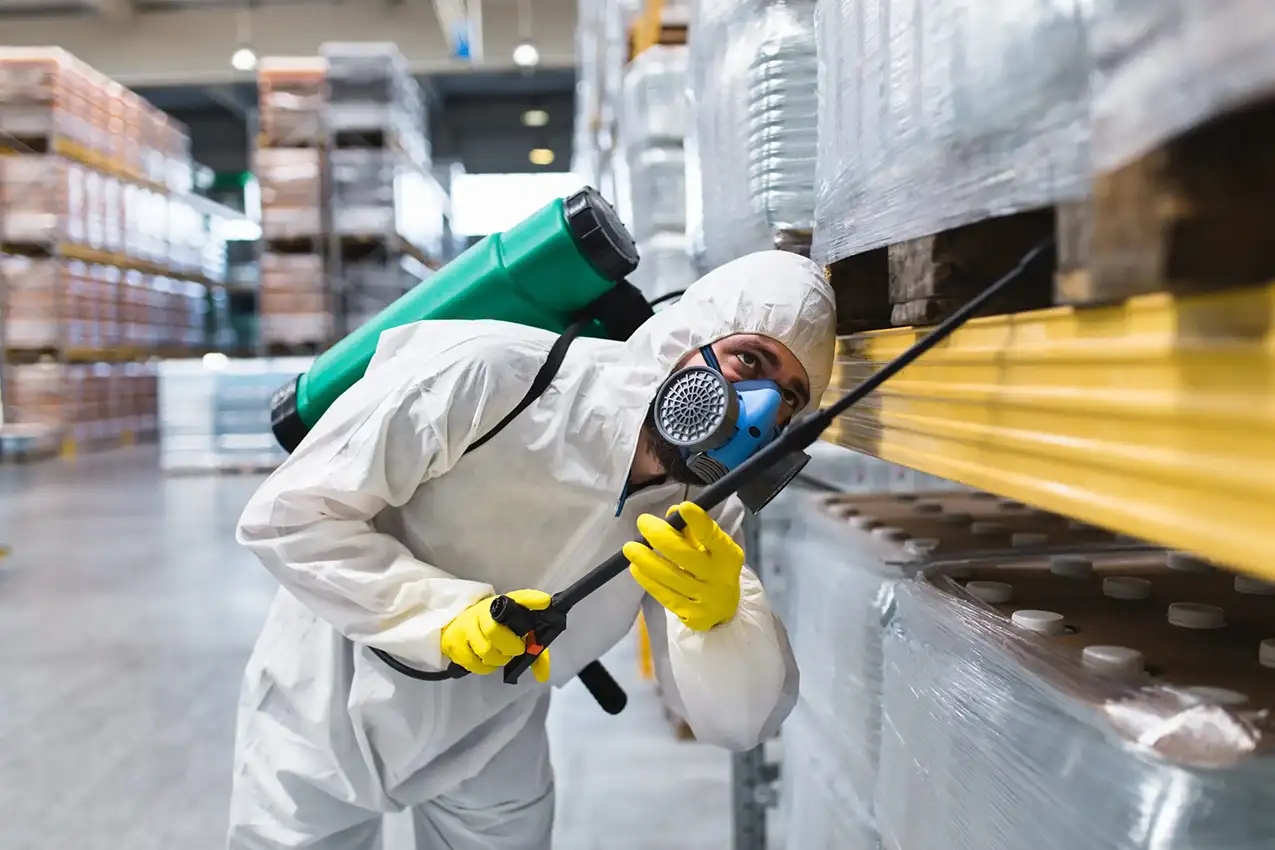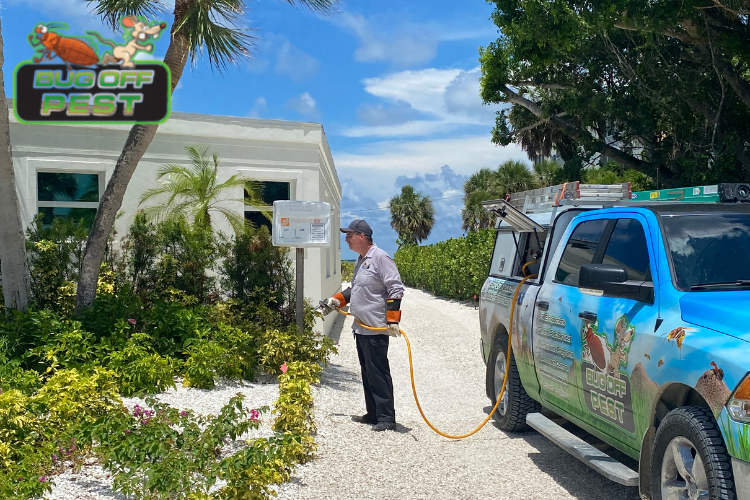Get Rid of Mosquitoes with Professional Mosquito Control Services in Port Charlotte
Discover the Significance of Pest Control in Preserving a Healthy Atmosphere and Treatment Strategies

The Function of Pests in Ecological Communities
Pests, frequently checked out entirely as annoyances, play a diverse function in environments that is essential for maintaining environmental equilibrium. They add dramatically to various ecological procedures, including pollination, nutrition biking, and pest control. For instance, several insect varieties, such as bees and butterflies, are essential pollinators for a vast array of plants, which subsequently sustains biodiversity and food production.
Furthermore, pests act as victim for countless killers, developing an important link in food internet. This connection guarantees the survival of various types and aids control populations within ecological communities (Termite treatment Port Charlotte). Decomposer parasites, such as particular beetles and fungi, are important in breaking down organic issue, thus improving dirt and helping with vitamins and mineral recycling.
Conversely, while insects can be useful, their overpopulation or intrusion right into non-native environments might interfere with these ecological features. This complexity underscores the importance of comprehending bug characteristics, as effective pest administration techniques should think about both their eco-friendly roles and possible effect on human activities. Stabilizing pest existence while minimizing harm is important for protecting the honesty of ecological communities and making sure agricultural performance.
Wellness Risks Connected With Parasites
The visibility of insects in numerous atmospheres prolongs beyond their ecological duties, as they additionally position considerable health and wellness dangers to animals and human beings. Several bugs, including bugs, rats, and bloodsuckers, are service providers of conditions that can have significant health effects. Rodents are understood to transfer hantavirus and leptospirosis, both of which can lead to extreme respiratory and kidney issues, specifically.
Insects such as insects and ticks are well known for spreading vector-borne conditions like malaria, dengue fever, and Lyme illness. These illnesses can cause high morbidity and death rates, especially in vulnerable populations. Furthermore, bugs like roaches and bedbugs can worsen allergic reactions and bronchial asthma, contributing to respiratory issues in individuals, particularly those with pre-existing problems.
Additionally, the existence of bugs can bring about psychological stress and discomfort, affecting general wellness. Contamination of food and surface areas by parasite droppings and continues to be can result in foodborne health problems, highlighting the value of keeping sanitary problems. Understanding the wellness risks associated with pests is important in acknowledging the requirement of reliable pest administration approaches to safeguard human and animal health and wellness.

Benefits of Effective Bug Control
Efficient pest control is important for preserving a secure and healthy and balanced setting, as it consistently mitigates the numerous risks related to insect problems. Among the key advantages of reliable bug monitoring is the decrease of carcinogen. Bugs such as rodents, mosquitoes, and roaches are vectors for diseases that can influence both pets and humans. By controlling these populaces, the likelihood of condition transmission is considerably decreased.
Furthermore, effective parasite control safeguards property and frameworks from damage. Numerous insects, like termites and woodworker ants, can create considerable structural damages that may require pricey fixings. By proactively taking care of these property owners, infestations and organizations can protect their financial investments.
One more significant benefit is the enhancement of total top quality of life. A pest-free atmosphere adds to mental health and decreases stress and anxiety connected with infestations. In addition, efficient pest control promotes a safer atmosphere for children and pet dogs, ensuring that homes continue to be shelters without disease-causing microorganisms and damaging chemicals.
Common Insect Control Methods

In the realm of pest monitoring, numerous strategies are used to deal with invasions effectively. These techniques can over here be broadly classified into 3 primary approaches: social, mechanical, and chemical controls.
Cultural control includes modifying methods to reduce bug establishment, reproduction, and survival. This might consist of crop turning, proper hygiene, and habitat manipulation, which jointly create a setting less for pest expansion.
Mechanical control employs physical techniques to remove pests (Termite treatment Port Charlotte). Methods such as vacuum cleaners, barriers, and traps are generally used to straight remove insects from a location. This technique is particularly effective for taking care of rats and pests without using damaging chemicals
Chemical control entails the application of chemicals to manage insects. These compounds can be classified right into herbicides, insecticides, and fungicides, each targeting details sorts of pests. It is important to utilize these chemicals carefully, sticking to safety and security standards and guidelines to decrease potential harm to non-target species and the setting.
Each pest control technique has its benefits and constraints, and frequently, an integrated approach incorporating numerous techniques produces the very best lead to keeping a pest-free atmosphere.
Sustainable Parasite Monitoring Practices
Sustainable insect monitoring methods encompass an array of methods developed to minimize ecological effect while efficiently controlling parasite populaces. These practices prioritize the usage of ecologically friendly approaches over chemical pesticides, thus decreasing the threat of damage to non-target varieties, including beneficial pests, wildlife, home and people.
Integrated Pest Monitoring (IPM) is a foundation of lasting methods, combining organic, cultural, mechanical, and chemical tactics to take care of parasites. Organic control involves presenting natural predators or bloodsuckers to subdue insect populations. Cultural practices, such as plant rotation and polyculture, interrupt pest life process and boost ecological community durability.
Mechanical techniques, such as barriers or traps, can effectively avoid bug accessibility without chemical treatment. Additionally, maintaining healthy environments via correct soil management, plant health, and biodiversity can naturally reduce bug problems.
Education and learning and recognition are vital components, empowering individuals and neighborhoods to identify pest risks early and carry out preventive measures. Termite treatment Port Charlotte. By promoting an alternative technique that stabilizes bug control with eco-friendly integrity, sustainable pest management practices not only safeguard plants and frameworks however additionally contribute to a much healthier setting for future generations
Verdict

Recognizing the wellness dangers associated with parasites is vital in acknowledging the necessity of reliable bug administration techniques to safeguard human and animal wellness.
Efficient insect control is essential for keeping a safe and healthy and balanced atmosphere, as it consistently alleviates the various threats associated with parasite problems.Integrated Insect Management (IPM) is a foundation of sustainable practices, integrating biological, social, mechanical, and chemical techniques to manage bugs. By understanding the function of parasites, identifying connected health risks, and using varied treatment methods, a lasting approach to pest Home Page administration can be attained. Integrated Insect Administration (IPM) stresses a holistic method that minimizes harm to helpful microorganisms while efficiently managing parasite populations.